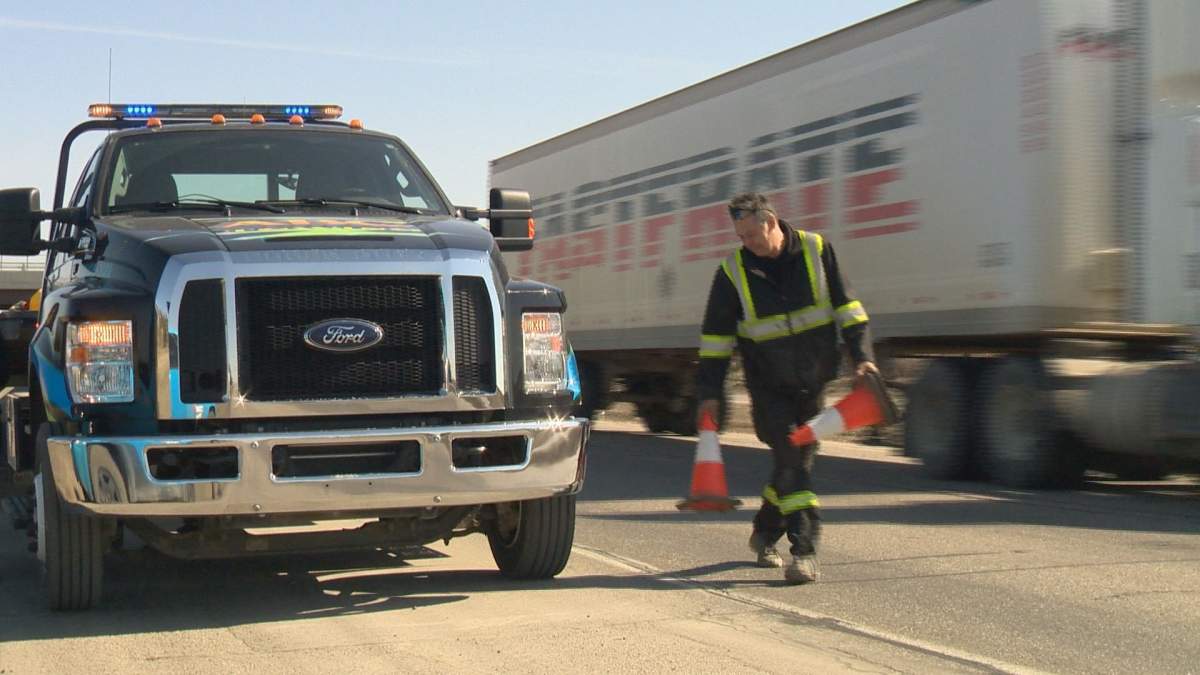For Regina tow truck operators, the line between life and death is only as big as the space they’re given.

“I’ve had mirrors hit me in the back and spin me out of my jacket,” Ken Ledoux recalled. “I’ve had my truck grazed a couple times. Nothing severe where it needed work, but it was tapped, and that’s people doing 70-80 kilometres an hour going by me.”
After 22 years in the business, Ledoux says vehicles are finally starting to slow down and move over, thanks in part to legislation passed last year allowing tow trucks to use blue emergency lights while working.
ABC Central Towing owner Greg Doti added the lights to his fleet as soon as he could.
“It just takes that one split second and it’s all over,” Doti said. “It’s tough. I’ve had a hard time sleeping at night thinking about my guys working at night.”

Get daily National news
Just last year, Ledoux’s friend Courtney Schaefer was struck and killed while responding to a call near Esterhazy.
Ledoux and Doti agree the situation has improved since then, but there is always room for improvement.
On the morning of April 26, Global News set up a roadside camera next to an ABC truck on Ring Road. In 24 minutes, 13 cars didn’t move over, while several more failed to slow to 60 kilometres an hour.
Speeding past a tow truck operator or other emergency vehicles can cost nearly $800 in fines, plus three demerits on your license.
Regina RCMP says it’s laid 223 charges in Regina alone so far this year.
The difficult part lies in enforcing the law. Tow truck operators are often unable to catch the license plates of speeders, and police can’t attend every job.
“I think more signage, higher fines, a seven-day vehicle impoundment to get that message across,” Doti noted.
SGI Minister, Joe Hargrave says he’d like to look into giving trucks their own radar guns to clock speeders.
“We can have a high fine, but if it’s not enforced it’s of no value,” Hargrave said. “Right now we’ve got some pretty good fines out there and good penalties, but we have to get the enforcement up and that’s what we’re going to be looking at.”
For those working on Regina’s roadside, progress can’t come fast enough.
“The motoring public is finally becoming aware that we’re individuals trying to help them,” Ledoux, a father of two, added. “We’d like to go home at the end of the night. If they can move over and give us room to work, we’d only be an impedance for ten minutes, at most.”








Comments
Want to discuss? Please read our Commenting Policy first.